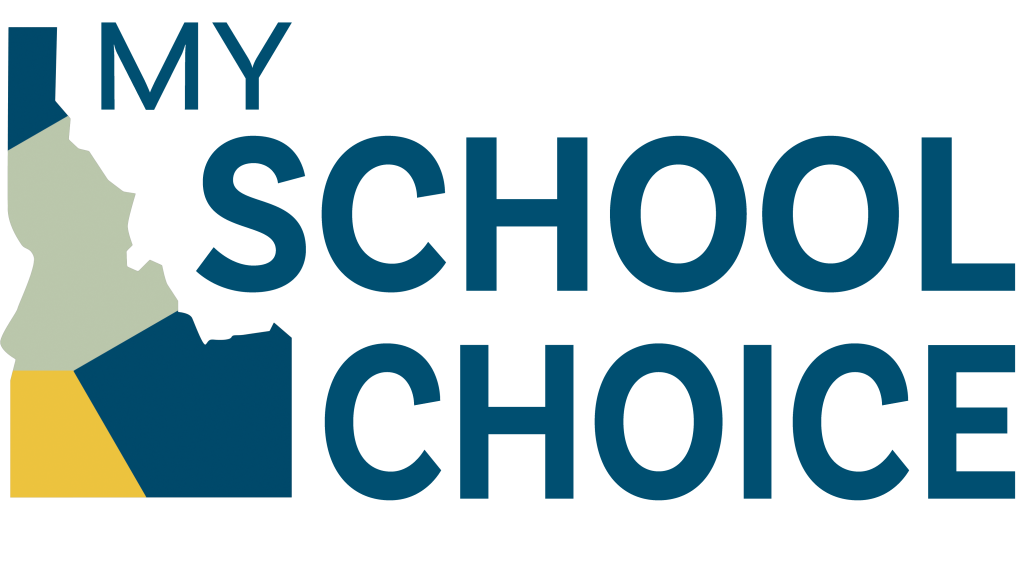Frequently Asked Questions

Program Basics
How do I know if my school is a nonpublic school?
A nonpublic school means a private school, microschool, or learning pod that provides academic instruction to eligible students. Nonpublic academic instruction can be delivered in person, online, virtually, or through a combination of these methods. A nonpublic school will charge tuition while a public school doesn’t. For example, students who attend public schools such as the Idaho Home Learning Academy or the Idaho Virtual Academy aren’t eligible for the parental choice tax credit or the advance payment.
What if my child’s nonpublic school doesn’t include the required core subjects?
To be eligible to apply for the parental choice tax credit or advance payment, academic instruction must include the core subjects of English language arts, mathematics, science, and social studies, at a minimum.
What if my child’s nonpublic school isn’t accredited?
If the nonpublic school that your child is attending isn’t accredited, you must document their growth as a student using a portfolio of evidence or a learning record.
What if my student takes a class or participates in an activity at a public school?
You can’t claim the parental choice tax credit or use the advance payment for any semester when your student is enrolled in a public school for any reason. Check with the public school if you’re unsure whether your child is enrolled. The law specifically states that eligible students can’t be enrolled full-time or part-time in a public school, public charter school, public virtual charter school, public magnet school, or part-time kindergarten.
What if my child attends IDLA, IHLA, or IDVA?
You can’t get a parental choice tax credit or advance payment for any semester in which your child was enrolled in a public school or public-school entity for any reason. The Idaho Digital Learning Alliance (IDLA), Idaho Home Learning Academy (IHLA), and the Idaho Virtual Academy (IDVA) are either public schools or receive public funds for every enrollment.
Who’s considered a parent?
Parent means an eligible student’s parent, legal guardian, or foster parent who’s licensed and in good standing under Idaho law Title 39, chapter 12.
What’s the definition of a student with a disability?
For a student to be considered for the $7,500 as a student with a disability, the parent must do one of these:
- Document the student’s diagnosis or other determination that an Idaho licensed health care provider made.
- Document the student’s eligibility for services under an individualized education program in accordance with the federal Individuals with Disabilities Education Act (IDEA).
And, the student must also require ancillary personnel as defined in Idaho Code Section 33-2001(1): “Ancillary personnel” means those persons who render special services to exceptional children in regular or in addition to regular or special class instruction as defined by the state board of education.
How is transportation cost calculated?
The cost of transportation is for the trip between your home and the qualifying nonpublic school for your eligible students.
The parental choice tax credit or advance payment won’t cover trips to other places or activities, such as to field trips, music lessons, or sports.
The state will reimburse qualifying mileage claims at the state mileage rate. We recommend you keep a log of dates, destinations, and miles traveled.
Do parents and children need to be residents of Idaho to get the parental choice tax credit?
Yes. To be eligible, you, as the parent, and your eligible children must be full-time Idaho residents. You must be full-time residents in 2024 and 2025 to apply. You must have filed a 2024 Form 40, Idaho Individual Income Tax Return, that lists the children as dependents.

Eligible Students
Will an Idaho resident student be eligible if the nonpublic school is out of state?
Yes, as long as the school meets the requirements of the law. If the nonpublic school that your child is attending isn’t accredited, you must document their growth as a student using a portfolio of evidence or a learning record.
Is there a limit to how many children in my family can get the parental choice tax credit?
No. You can apply for all your eligible children on one application.
Can my child still be eligible if they turn 19 in high school?
An eligible student must be no younger than 5 and no older than 18 as of December 31 of the tax year. An eligible student with a qualifying disability must be no younger than 5 and no older than 21 as of December 31 of the tax year.

Application Process
What’s the advance payment?
The advance payment is a one-time payment that, if funded, you can use to pay for expected, qualifying expenses related to nonpublic academic instruction for an eligible student. The amount of the advance payment is up to $5,000 per eligible student, or up to $7,500 per eligible student with a qualifying disability. The advance payment will be offered every year of the program, but parents can only take advantage of it once for each eligible child. They can’t apply for it every year.
To be considered for the advance payment:
- Your modified adjusted gross income can’t exceed 300% of the 2024 federal poverty level. Find your modified adjusted gross income on line 7 of your 2024 Form 40, Idaho Individual Income Tax Return.
- You, your student, and the nonpublic instruction must meet the other criteria that exist for the parental choice tax credit.
If you’re awarded the advance payment, you must save receipts for actual, qualifying expenses you paid. You’ll be required to provide them to the Tax Commission. Any funds from the advance payment that you didn’t use for qualifying expenses must be repaid to the Tax Commission.
What happens if my expenses don’t qualify?
For the parental choice tax credit, you must submit copies of receipts for expenses paid in the year when you apply.
For the advance payment, you must provide receipts to prove that you spent the money you received on qualifying expenses. You must repay any money you spent on nonqualifying expenses or on qualifying expenses without proper receipts.
What if I’m not required to file a 2024 Idaho Form 40 tax return?
To apply for the parental choice tax credit or advance payment, you must file a 2024 Idaho Form 40 Individual Income Tax Return even if you don’t have taxable income. See the special filing instructions. The date to file your return by for this program was November 1. You can still file, but the Tax Commission can’t guarantee it can process your return in time for the January 15 to March 15 application period.
Can I claim the parental choice tax credit without completing an application?
No. Parents must complete an application and have received notification from the Tax Commission that they were awarded the parental choice tax credit before claiming it on their tax return. Claims made without prior approval won’t be eligible, and the state won’t provide the credit.
Is the Idaho Parental Choice Tax Credit program a voucher program?
No. Once the Tax Commission awards the parental choice tax credit or advance payment through the application process, it goes directly to a parent, guardian, or foster parent of each eligible student.
What if I share custody with another parent?
Only one parent can receive the parental choice tax credit for an eligible student each year. If more than one parent files for the credit for the same child, Idaho law Section 63-3029L(2) decides which parent will get it.
My spouse and I file as “married filing jointly” on our individual income tax return. Do both of us need a TAP account?
No, just one of you needs the TAP account, and it can be either one of you. Make sure to sign up for the TAP account using your Social Security number (or ITIN). You can’t use a TAP account you set up using your business’s federal employer identification number (EIN).

Other Considerations
Do purchases made using the Empowering Parents grant qualify for the Idaho Parental Choice Tax Credit program?
No. You can’t claim the parental choice tax credit or advance payment for items or services purchased with the Empowering Parents grant.
Do funds from the Advanced Opportunities reimbursement qualify for the Idaho Parental Choice Tax Credit program?
No. You can’t claim the parental choice tax credit or advance payment for any expenses that the Advanced Opportunities reimbursement covers.
Can I use an Idaho Ideal 529 plan to pay for qualifying tuition expenses and still claim the parental choice tax credit?
Yes.
Do I have to complete the satisfaction and engagement survey at the end of each tax year?
Yes. Each parent must complete and submit the survey at the end of each tax year. The first survey will be due no later than March 15, 2027, but the Tax Commission recommends filling it out prior to January 15, 2027. Not completing the survey means you won’t be eligible to apply for the parental choice tax credit for the next year when the application process opens on January 15, 2027.
What happens if I misuse the funds?
If you receive the parental choice tax credit or advance payment and spend the funds outside the provisions of the law, you must repay those funds. A financial penalty and interest might apply. If you receive the parental choice tax credit or advance payment and are found to have willfully provided false information to obtain them, that’s considered tax fraud. Civil and criminal penalties — up to felony charges — might apply.



